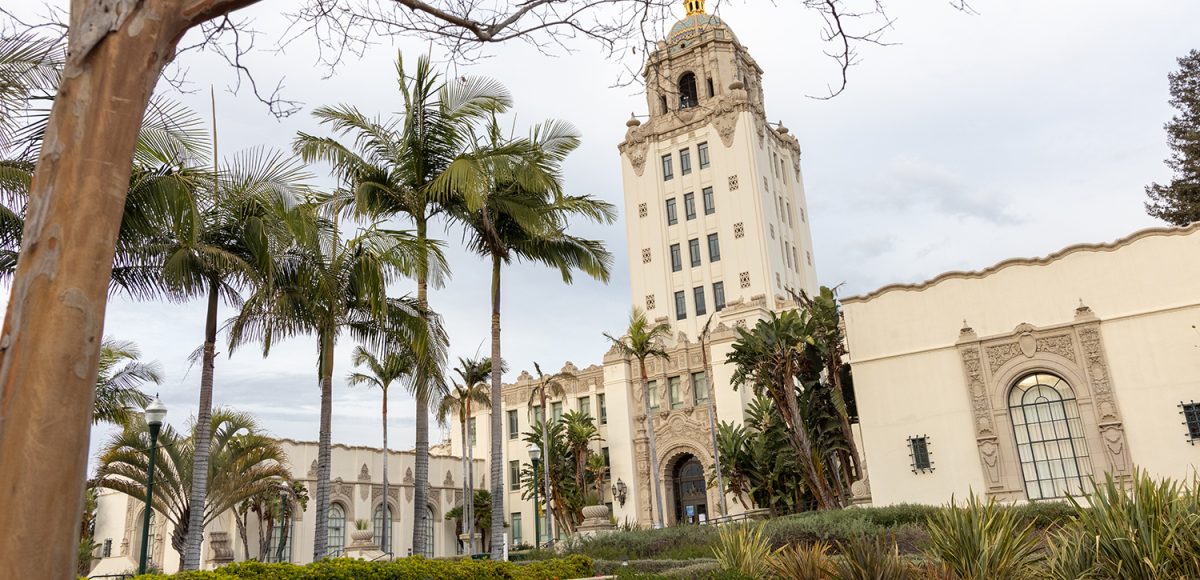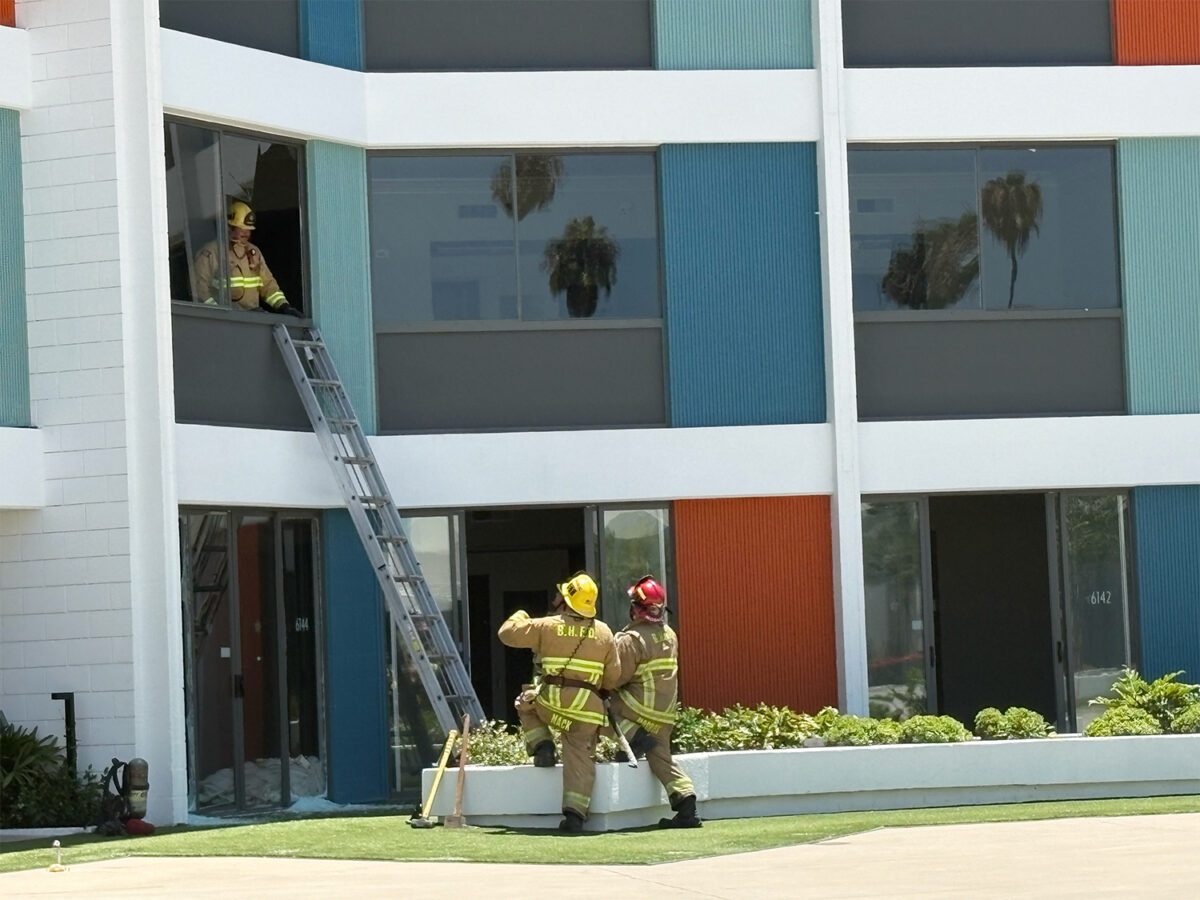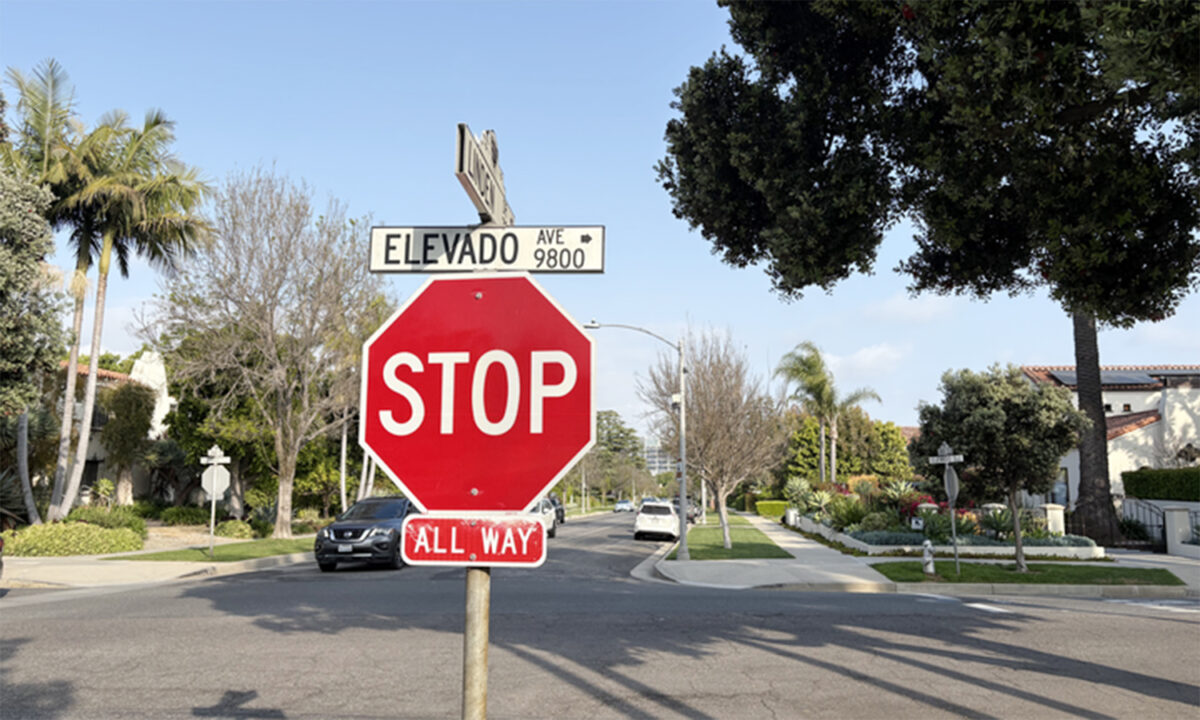At a time of national upheavals and global uncertainty, the Beverly Hills City Council reconvened for the first time in the New Year to resume the work of local governance. In signs of the times, the Council heard a report on a major projected budget shortfall, with revenue decimated by COVID-19 and the city shouldering growing costs related to protests and security. Then, the Council also discussed the ongoing vaccine rollout and plans to include Beverly Hills in the process. Finally, the Council also started the year with more routine fare, hearing an appeal for a lot line adjustment request for a property in Trousdale Estates.
The City Council discussed a newly updated budget projection at its Jan. 12 Study Session. The bleak forecast graphed a shortfall of $10.9 million for the fiscal years 2020-2021, a significant rise from the $3.75 million projected in June.
“We’re at a time and place where, as you can imagine, the news report is not great news, but I don’t think it is necessarily unexpected news,” Director of Finance Jeff Muir primed the Council at the Study Session.
The city generates the majority of revenue from four sources: property tax, sales tax, Transient Occupancy Tax (TOT), and business license tax. With COVID-19 paralyzing the economy since March, the city has seen large decreases in sales tax and TOT, the tax generated from hotel guests.
One factor for the city’s financial woes, the city unexpectedly became the site of multiple, recurring protests since the summer–most notably, Saturday’s pro-Trump “Freedom Rally.” In response, the city has allocated nearly $3.5 million for public safety expenses, which includes overtime for Beverly Hills Police Department and contracts with two private armed security companies. The city appropriated another $2 million for costs related to COVID-19.
But the city pointed to a light at the end of the tunnel. With the vaccine rolling out, the city expects its coffers to rebound swiftly from the blow. “The more positive news looking forward is that staff expects revenues to begin recovery, particularly with the vaccine being introduced into the population,” the staff report compiled for the Jan. 12 Study Session says.
The city will hear its next update in March to evaluate the status of its financial situation.
For this reason, and because of the ever-growing human toll of the pandemic, the City Council discussed the ongoing vaccination process later that day at the Jan. 12 Regular Meeting.
“This has been a bright light after many months of challenge and in the fight against COVID-19. The vaccine will be one of the biggest tools we have in the fight against this virus,” Emergency Management Manager Meena Janmohamed said.
Beverly Hills currently does not play a role in the distribution of the vaccine, a responsibility carried out by the federal, state, and county governments. Los Angeles County, which models its approach on the state’s guidelines, has established a two-phase plan dictating who gets the vaccine first, with each phase subdivided by letters, which are further broken down by tiers. Phase 1A, where the county is currently, covers all healthcare workers and residents of long-term care facilities. Phase 1B, which includes the elderly who are at higher risk for infection, is estimated to begin by February. Phase 1C, expected to begin by March, opens the vaccine up to those 50 to 64 years old and 16 to 49-year-olds with underlying health conditions or disabilities.
But according to Janmohamed, Beverly Hills stands ready to play a more active role in inoculating against the virus. Currently, the county is utilizing “mega-sites” like Dodgers Stadium, but Janmohameed says that the city is prepared to transform Roxbury Park into a vaccine distribution center.
“What we really anticipate the community distribution to look like will take place through these mega sites, and then through local large pharmacies and smaller scale pharmacies that have the capability to mass inoculate, and then eventually down to primary care providers,” she said.
Per a recent survey of the city’s pharmacies, 17 out of 22 have signed up with the county to register to be vaccine distribution and host sites–”which is I think a really wonderful number,” said Janmohamed.
With minimal federal guidance, the initial rollout of the vaccine has been criticized as inefficient and patchwork.
“We’re not supposed to go into tier 1C until March,” said Councilmember John Mirisch. “By then the entire country of Israel will have been vaccinated. What’s going wrong?”
Janmohamed pointed to some key differences in the approach to public health by officials in Israel and government heads in the United States. From the beginning of vaccine development, “there were opportunities to ramp up production, or secure more vaccine, which we could have done a little more. From my understanding, what the Prime Minister of Israel did is, very early on, [he] secured a partnership with Pfizer. I think you also see a lot of the national leadership in Israel and some of the elected officials really wholeheartedly embracing the vaccine.”
Finally, the City Council also handled a more ordinary matter in its Jan. 12 Regular Meeting, hearing an appeal of a lot line adjustment decision for a property in Trousdale Estates. The property falls both in Beverly Hills and the City of Los Angeles, complicating the homeowner’s request to create two lots out of the existing three. As it stands now, one parcel of the property lies in Beverly Hills and the other two in Los Angeles.
In August 2019, the homeowner filed a request to redraw the lines such that one parcel crosses city lines, with the other one in Los Angeles. The Planning Commission held a hearing on the request in the fall and determined that the request did not conform to the city’s General Plan “because it would allow a development that could be inconsistent with the scale and character of the Trousdale Estates area,” according to the staff report drafted for the meeting.
Attorney Benjamin Reznik, the homeowner’s representative, appealed the denial, claiming that the Planning Commission “erred and abused its discretion when it denied a Lot Line Adjustment.” The appeal argued, among other points, that the Planning Commission improperly considered future developments in its denial, pointing to public comments made by neighbors expressing concerns about the creation of a larger home by Los Angeles standards.
At the Jan. 12 hearing, though, the City Council seemed poised to side with the Planning Commission in maintaining its right to deny the application. But rather than sustain the denial, the Council opted to extend the discussion to another meeting, where they will discuss a possible ordinance prohibiting lot line adjustments across city boundaries.
“This is a distinctive situation, because the lot line at issue is on the boundary of a city and the request would be to move it to create a block that would span two cities,” said Vice Mayor Rubert Wunderlich. “And so I do support the proposal to develop an ordinance that would govern lot line adjustments for the situation in which the lot line adjustment would amount to a change from a lot that formerly had been entirely within Beverly Hills to one that would extend across two cities.”







